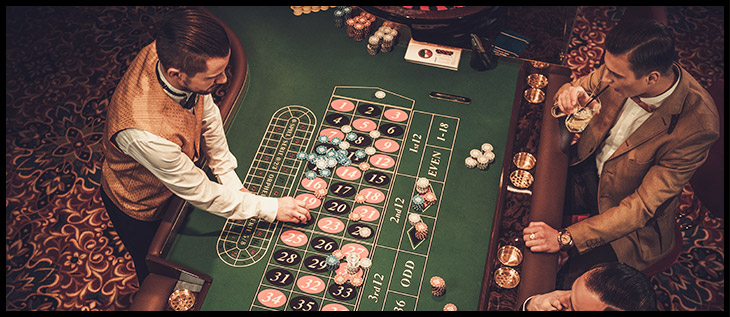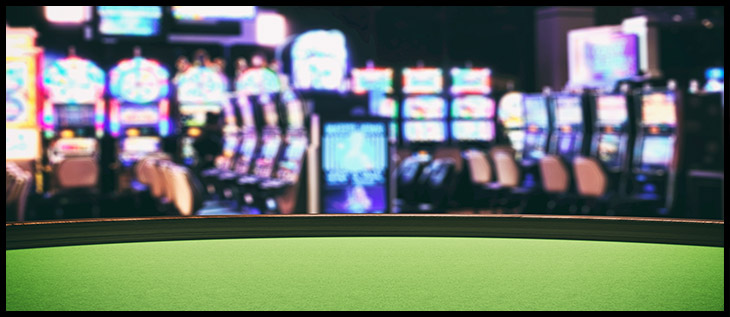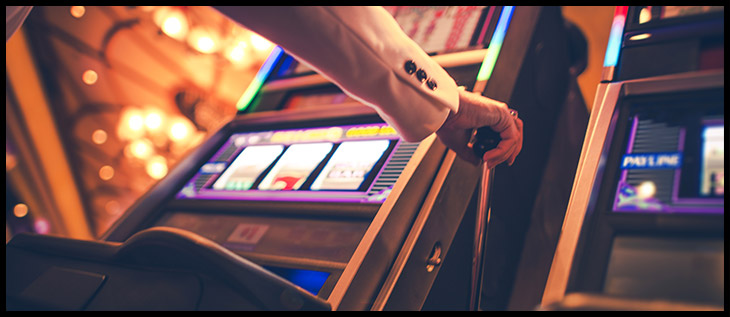The Science Behind Slots
Online slots are fun to play and are among the most popular games at online casinos. You place your bets and hit the Spin button. The reels spin away and stop at a point in time. You win if you hit a winning combination. Simple, right? Yes, and no.
The entire process is simple for a player, but there is a huge amount of science involved in creating the entire experience: right from the way a slot looks and feels to the way you are guaranteed a completely random outcome for every spin with the random number generator (RNG) and, even further, the psychological aspect that makes slots so successful.
On this page we take a look at the science behind online slots and how it all works. We will first discuss about the RNG and then move on to the science behind the visual aesthetics.

The Random Number Generator (RNG)
Especially because of the remote nature of online casino gambling, one critical requirement is fair gaming. Online casinos fulfill this requirement for online slots by using a random number generator (RNG). The random number generator is an algorithm generated by a computer that online casinos use to randomize the results of a spin. It does this by generating a sequence of numbers, each number corresponding to a symbol on the reels, which one cannot predict by any means other than by chance.
There are typically 2 types of RNGs:
- Hardware Random Number Generator (HRNG): This type of RNG genuinely generates random numbers. They are not even computed values that are obtained from an algorithm that executes repeatedly. They are truly random because you don’t even have a repeated set of numbers or a set algorithm to crack them. That is why they are also called True Random Number Generators (TRNG).
- Pseudo Random Number Generator (PRNG): This type of RNG generates numbers that only look random. This is what it means: if you know the state of the PRNG you can reproduce the random number sequence generated.
How the RNG Works
How the RNG Works: The software sets up the algorithm with a seed value. This is only natural because for something to execute repeatedly there has to be a beginning: that is the seed value. The seed value is derived from any one of a number of repetitive actions or operations happening in the computer. It could be processes that are running, the specific pattern to a mouse click, a specific set of keystrokes, or even the computer’s clock.
What this means for Slots: Each symbol on a reel has a specific value assigned to it. When you spin the reels the RNG algorithm throws up unique numbers, at the speed of hundreds per second. The set of numbers that are thrown up when the reels stop spinning determine the symbols that appear on your computer screen at that point in time. The arrangement of the symbols on the reels, determined by the numbers they are represented by, determine whether you won, and by how much. That is how random the whole exercise is. There is another factor to consider: each symbol is weighted uniquely. This means in a game with 24 symbols per reel the chances of a symbol landing on a particular reel are effectively 1 in 24 and completely random.
Usually lower symbols are more heavily weighted. The probability of you landing a lower weighted symbol is far higher than the probability of landing a more heavily weighted symbol, like a bonus symbol or, to take it to an even higher level of randomness, the probability of landing a set of bonus symbols to trigger a bonus round. While the process itself is random, players need to be assured of that fact. That is why every reputable online casino gets its RNG audited by an independent third party that is known for its neutrality. Some of the most popular testing agencies that the online casino industry uses are:
- Technical Systems Testing (TST)
- Gaming Labs International (GLI)
- iTech Labs
- NMi
The Return to Player (RTP) Value
Another bit of science that plays out when it comes to online slots is the return to player (RTP) value. The RTP value tells you how much, over a period of time, a slot pays you back. This value is usually calculated and represented as a percentage value; so a slot with a RTP value of 96% literally means that for every $100 you wager the machine will pay you back $96 over a period of time. One thing to remember: this is a theoretical value and a statistical calculation.
In the above example, the RTP value is the 96%, and the 4% is the house edge. So on every $100 you wager, the house stands to make $4. While the RTP does tell you how much you can expect to win back out of the $100 you wagered, in the earlier example, it does NOT tell you how often or how soon you can expect to win it back.
All of it is driven by the use of the RNG, at the end of it. That is what determines the fairness quotient and levels the playing field: your chances of winning on a particular spin are exactly the same as your chances of losing.

Slots and the Price Associated with Them
Each slot has a price, for both the player and the operator. For the player, the price is the cost per spin. So for a 50 cent spin, the price he sees is the 50 cents he pays. For the operator, on the other hand, the price would incorporate not just the cost per spin but other factors like the house edge. So, for a game with a 5% house edge, the price for the operator would primarily be the 5% they collect on each spin over a period of time. CasinoShortList has done extensive research to only offer the best online casinos offering these high RTP slots for you. These are slots with the best RTPs.
Slots and Human Psychology
There is another level of science involved when it comes to playing slots: psychology. There have been numerous studies conducted on this, mainly focusing on human behavior. It is as simple as the results of an experiment Skinner conducted in the 1970s: pigeons were caged and rewarded with food when they pressed a lever. The reward was random, and this made the pigeons hit the lever frequently, not knowing when they would win reward and hoping to win it every single time.
Another scientist, Natasha Dow Schull, a cultural anthropologist, has actually identified some of the features – called the trigger features – land-based casinos use to grab the attention of players and keep them hooked. Here are a few that we have always known about but never associated with the scientific aspect:
- Screen type: Screens with soft color patterns and an inclination of 38 degrees ensure you don’t hurt your eyes and help preserve energy.
- Sound: Most of the sounds in a slot machine are sweet music to the ears. There is a science to this, which most of us aren’t aware of: the sounds are generated in the C key, which has a pleasant ‘sound’ to it.
- Location: The location and setting of a slot machine are designed to ensure privacy and give you a shot at playing some long sessions
- Button usage: The button gives you a sense of control, of executing a task on your own, as does a lever. When you score a win you feel validated, and when you don’t, you feel the need to score one on the next spin.
- Near misses: Near misses are a big factor in getting you to place the next bet. They give you the feeling of having lost out narrowly and therefore the need to correct that the next time around.
- Low bets: The first thought when you see a penny slot is that you can have some fun here because it just costs well, a penny!

The Psychology of Winning
The great thing about slots is that there are thousands of games to play, and even more ways to win. No studies are needed to prove the obvious psychological fact that everyone loves winning.
































































































